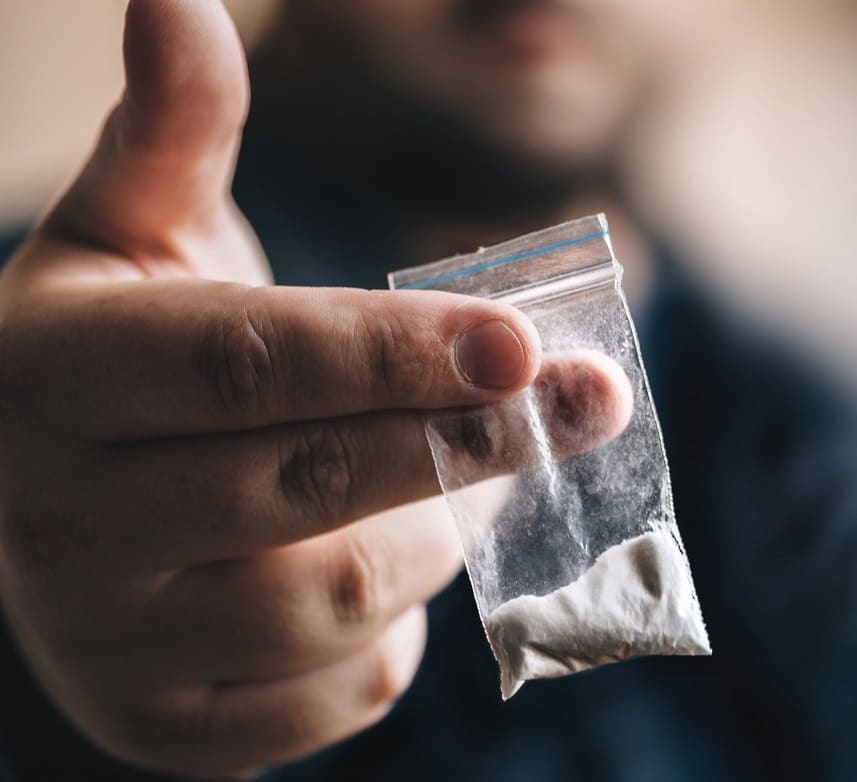Are You Addicted To Cocaine, Signs of Dependency

What is Cocaine?
Cocaine is a stimulant substance that is predominantly made from the leaves of two South American coca species. Indigenous peoples of South America have been systematically using this substance for generations, either by chewing on the leaves or by smoking them in pipes.
Cocaine is a potent drug that has numerous negative effects on both the body and the brain. One of the benefits of the medicine is that it acts nearly instantly.
Cocaine has surpassed alcohol and heroin as the third-most-abused drug in the UK because of its accessibility and price.
How does Cocaine Work?
Cocaine is a stimulant, so it makes you desire to do things that will raise your blood pressure and pulse rate. Cocaine interacts with dopamine receptors in the reward centre of the brain as it enters the body. Your brain releases endorphins as a result, which are feel-good hormones. These endorphins rush your brain when you consume cocaine, giving you a high.
When you use cocaine frequently, your body grows desensitised to the drug, requiring increasing amounts to provide the same effects. As a result, your tolerance increases, and eventually, you require bigger doses of the drug just to feel normal once again. When you get to this point, you can have a strong need to consume cocaine whenever you’re down. If you keep abusing cocaine, you’ll get dependent on it and eventually become addicted to it.
Warning Signs That You’re Addicted to Cocaine
The following behaviours may indicate that you have a cocaine addiction if you recognise them in yourself:
- You discover that each time you take the drug, you need to take more and more to have the intended result.
- You experience agitation, restlessness, and depression after you stop using cocaine or cut back on your dosage.
- Even if you try, you can’t reduce or control how much you consume.
- You ponder cocaine frequently and work hard to obtain it.
- You put cocaine use ahead of family, friends, and employment.
- Although you are conscious of the harm it is causing you, you are unable to stop consuming it.
Behavioural symptoms of cocaine addiction
- Acting rashly or with greater vigour.
- Attempting to steal or borrow cash.
- Lying about your whereabouts, relationships, and activities
- Being unable to stop abusing cocaine.
- Acting in a careless and dangerous manner.
- Excessive pornographic viewing
- Interacting with escorts or prostitutes.
Psychological symptoms of cocaine addiction
- Poor decision-making
- Restlessness
- Psychosis
- State of euphoria (temporary)
- A quick overabundance of confidence
- Depression, mood swings and irritability
- Agitation
Physical symptoms of cocaine addiction
- High body temperature and blood pressure
- Continuous nosebleeds
- Abundant perspiration
- Appetite decrease
- Bursts of energy
- Insomnia
- Liver and kidney issues
- Stroke
- Cognitive impairment
- Heart attack
Recognising the Signs and Symptoms of Cocaine Addiction
A single use of cocaine can soon develop into a pattern of abuse, which can result in addiction. Due to the fact that its effects are frequently strong but short-lived, this may lead you to use more cocaine in order to feel the same high again. As a result, your body and mind may grow accustomed to cocaine, which may cause you to develop a tolerance to it and cause serious cocaine addiction symptoms. Because of this tolerance, you will need to use more cocaine more frequently to get the desired results.
As with all forms of substance abuse, each individual’s indications and symptoms of cocaine addiction will differ. There are, however, a number of psychological, physical, and behavioural symptoms that have been noted that have proven to be accurate warning signs of cocaine use disorder.
Cocaine causes a “high” feeling and increases attentiveness by sending strong signals to the brain’s pleasure centres. Cocaine can be smoked, swallowed orally, injected, or snorted via the nose. After just one usage, cocaine use can modify the brain, and continued use can cause strong cravings, withdrawal symptoms, and neurological alterations.
Here are some warning signs of cocaine addiction.
Physical Changes
The mode of consumption affects how cocaine affects the body. Over time, frequent cocaine use can result in a variety of internal physical alterations. While taking cocaine orally might result in intestinal degradation, snorting it can induce nosebleeds, recurrent runny noses, and difficulties swallowing. Smoking cocaine can raise your risk of developing pneumonia and other respiratory conditions. The usage of needles can leave physical scars.
If you have reason to believe that a friend or loved one is battling a cocaine usage problem, here are some warning indicators to watch out for: Runny nose or frequent sniffing, red, bloodshot eyes, dilated pupils, change in eating or sleeping habits, such as a decrease in appetite and need for sleep.
Tolerance and Withdrawal
Tolerance, or the need for more cocaine to get the same high, is a pronounced indicator of cocaine addiction. Withdrawal frequently occurs along with tolerance.
It’s usually time to get help when cravings become excruciating and overwhelming, and it’s crucial to go through withdrawal under medical supervision.
Increased heart rate, blood pressure, appetite, and eventually fatigue are all experienced by a cocaine user. They will experience severe agony if they attempt a “cold turkey” withdrawal from their drug addiction.
School, Work and Money Problems
Long-term cocaine usage can cause financial issues, including missed employment and bill backlogs. Addicts to cocaine may also skip class and neglect their life’s objectives.
Although getting cocaine is against the law in and of itself, addiction to it can result in more criminal behaviour due to the expensive nature of the drug. Addicts to cocaine may also embezzle money from others, especially loved ones, and steal from them.
Mood Changes
Increased anger and despair are just two behavioural and personality changes that cocaine addiction can cause. Anxiety, paranoia, mania, and delusional thinking are some of the mental health disorders that cocaine can both create and make worse. Additionally, the high from cocaine can provide enhanced confidence, which can cause severe lows after withdrawal.
Social Changes
All types of relationships might suffer from the effects of cocaine. Addiction can result in violence and abusive conduct in addition to secrecy, deceptive behaviour, and putting the drug before people.
In addition, cocaine addicts may isolate themselves from loved ones and friends out of shame, which can make therapy more challenging. Experts contend that relationships with family might be essential to healing.
According to specialists, the family/significant others are the key to successful substance use disorder treatment and should be directly involved with substance use treatment. They are invaluable resources to support loved ones.
Cocaine Withdrawal Symptoms, Risks and Side Effects
Cocaine is addictive, and long-term usage can harm your mind, body, and spirit. As previously mentioned, each person will experience cocaine addiction differently.
Because cocaine is an illicit substance, any usage of it is regarded as abuse. Every organ in the body is adversely affected by cocaine over time, and there could be major long-term repercussions. Dopamine, a brain neurotransmitter associated with pleasure and reward, is elevated in the brain when cocaine, a central nervous system stimulant, is consumed. Among long-term effects, it can change the DNA of proteins, nerve cells, and brain cells.
Typical negative effects of cocaine use also include:
- Talkativeness
- Excitement
- Alertness
- Anxiety
- Overconfidence
- High heart rate
- Intense breathing
- Blood pressure rising
Sustained cocaine usage can strain the heart, making cocaine misuse extremely deadly. Stroke or cardiac arrest is the most frequent cause of mortality in long-term cocaine users. Get treatment right now if you or someone you know is misusing cocaine.
When a person’s body becomes accustomed to having cocaine present, its absence, also known as cocaine withdrawal, can result in several upsetting physical or psychological withdrawal symptoms, including but not limited to strong cravings for cocaine, nightmares, restlessness, and paranoia.
Detoxification from cocaine must be carried out correctly. It can be challenging to stop taking cocaine excessively, and the detoxification and withdrawal processes can be overwhelming. To prevent the body from experiencing additional trauma and stress, there are safe ways to detox from cocaine. Patients who want to be sure the detoxification procedure is carried out appropriately and with the least amount of risk should seek medically supervised detox. Compare Rehab UK can assist you in finding a medically assisted detox facility. Detoxification and counselling are frequently included in a customised cocaine addiction treatment plan at one of our partners, which not only helps you get the substance out of your system but also works to help you maintain abstinence once your programme comes to an end.
Cocaine and Suicide
Coke addicts frequently fail to consider the risks associated with their behaviour. They think their deeds will not damage them and that they are untouchable. Following a failed attempt at recovery or while continuing to use cocaine, some cocaine abusers take their own lives.
Compared to non-users, individuals who abuse cocaine have a significantly increased risk of suicide. According to studies, between 2% and 4% of abusers commit suicide annually. 80% of cocaine users who died by suicide had overused the drug for less than a year.
Get in Touch Today
Please call 0800 999 1083 for more information on how Compare Rehab UK can help you regain control, live a healthier life without cocaine and refer you for cocaine abuse treatment and rehab programmes.





